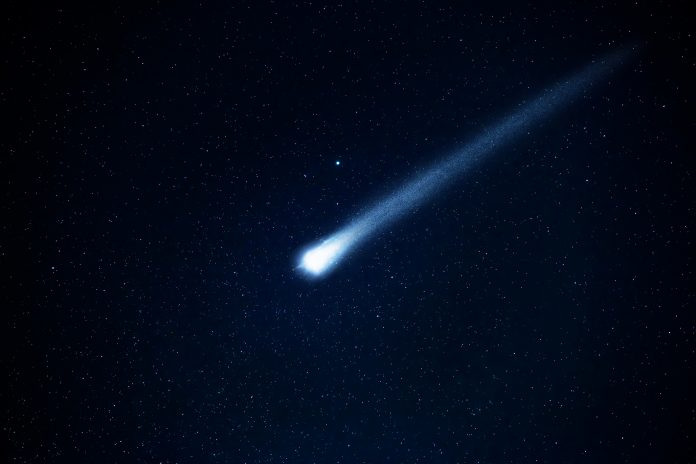Researchers have found evidence to question the 2014 meteor fireball that was previously identified as “extraterrestrial technological”
Recent research led by Johns Hopkins University has cast doubt on the widely reported discovery of alien materials in the ocean near Papua New Guinea
The findings will be presented at the Lunar and Planetary Science Conference in Houston on March 12 suggesting that the materials retrieved from the ocean floor are likely not from a meteor as previously thought.
The 2014 meteor: Meteor fireball and alien materials
In 2014, a meteor fireball streaked across the sky above the Western Pacific, captivating observers and sparking speculation about its origins.
Ground vibrations recorded at a seismic station on Manus Island in Papua New Guinea seemed to confirm the meteor’s impact, leading to a search for its fragments on the ocean floor.
However, Benjamin Fernando, a planetary seismologist at Johns Hopkins University, and his team have challenged this narrative. Through meticulous analysis of seismic data, they have determined that the signals originally thought to be the meteor were, in fact, likely caused by vibrations from a nearby road.
“The signal changed directions over time, exactly matching a road that runs past the seismometer,” explained Fernando. “It’s really difficult to take a signal and confirm it is not from something. But what we can do is show that there are lots of signals like this, and show they have all the characteristics we’d expect from a truck and none of the characteristics we’d expect from a meteor.”
Where these findings of extraterrestrial origins
These findings raise questions about the materials recovered from the ocean bottom, initially called as evidence of extraterrestrial origin. However, Fernando’s team claims these materials are more likely to be ordinary meteorites or particles from meteorite impacts mixed with terrestrial contamination.
The researchers have identified a more likely location for the meteor’s entry into Earth’s atmosphere, more than 100 miles from the area initially investigated. This difference suggests that the materials found on the ocean floor are unrelated to the meteor event.
“Whatever was found on the sea floor is totally unrelated to this meteor, regardless of whether it was a natural space rock or a piece of alien spacecraft — even though we strongly suspect that it wasn’t aliens,” Fernando clarified.
The team’s findings underline the importance of careful analysis and interpretation of scientific data.











